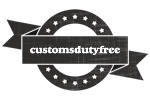Below are the important types of taxes in United Kingdom.
- Income TaxA tax paid by individuals to the government, the amount of w...: This taxA fee imposed by a government on personal or corporate incom... is paid based on income of indidual during the taxA fee imposed by a government on personal or corporate incom... year. The basic rate of income taxA tax paid by individuals to the government, the amount of w... is 20%, paid on income over the income taxA tax paid by individuals to the government, the amount of w... threshold of £10,400.
- National Insurance(NI) In the UK, contributions made to the government by empl... TaxA fee imposed by a government on personal or corporate incom...: National Insurance(NI) In the UK, contributions made to the government by empl... (NI) is a taxA fee imposed by a government on personal or corporate incom... which is taken from pay for the UK’s health and social security system (including state pensions). These payments are known as National Insurance(NI) In the UK, contributions made to the government by empl... contributions (NICs).
- Value Added TaxA fee imposed by a government on personal or corporate incom...: Value Added TaxA fee imposed by a government on personal or corporate incom... is applied on the tradeThe buying and selling or exchange of goods and services. Th... of taxable services and products made in the country.
- Excise Duty: Excise duties are chargeable on most hydrocarbon oil products, alcoholic drinks, and tobacco products imported into or produced in the United Kingdom.
- Corporation TaxA tax which limited companies and other organisations, such ...: Corporation TaxA tax which limited companies and other organisations, such ... is a taxA fee imposed by a government on personal or corporate incom... on limited companies’ taxable income or profits. For Corporation TaxA tax which limited companies and other organisations, such ..., companies have to calculate their own taxA fee imposed by a government on personal or corporate incom... liabilitiesDebts which are owed to someone, obligations or responsibili..., and are liable to pay the calculated taxA fee imposed by a government on personal or corporate incom... to the Inland Revenue without prior assessment. Payment of Corporation TaxA tax which limited companies and other organisations, such ... itself is due 9 months and one day after the company’s “normal due date” – usually the last day of your annual accounting period. The current Corporation TaxA tax which limited companies and other organisations, such ... rate is 20%. In the 2016 BudgetAllocation of funds or the estimation of costs for a departm..., the Government announced its intention to cut the rate of Corporation TaxA tax which limited companies and other organisations, such ... to 17% by 2020.
- Stamp DutyCalled Stamp Tax in the US. A stamp which must be put onto c...: Stamp dutyCalled Stamp Tax in the US. A stamp which must be put onto c... is imposed on some products and transfer of shares. Stamp dutyCalled Stamp Tax in the US. A stamp which must be put onto c... is not imposed on transactions, but stamp dutyCalled Stamp Tax in the US. A stamp which must be put onto c... land taxA fee imposed by a government on personal or corporate incom... calculation is based on the land transactions.
- Motor TaxA fee imposed by a government on personal or corporate incom...: It comprises the vehicle excise duty and fuel duty. Many other taxes like various statutory fees, London’s congestion charge etc, are also included in motor taxA fee imposed by a government on personal or corporate incom....
- Inheritance TaxAlso called Death Duty in the UK. Known as Death Tax in the ...: If a person, domiciled in the country, expires then the scope of inheritance taxAlso called Death Duty in the UK. Known as Death Tax in the ... will be opened. This taxA fee imposed by a government on personal or corporate incom... will be acted upon death and some longtime transfer at a rate of 40% and 20% respectively.
- PAYEPay As You Earn. In the UK, a system of paying income tax, w...: Pay As You Earn (PAYEPay As You Earn. In the UK, a system of paying income tax, w...) is a scheme operated by HM Revenue & Customs to take income taxA tax paid by individuals to the government, the amount of w... from employees as they earn it. If you run your business as a sole traderAlso called Sole Proprietor. A business which is owned and m..., then you are self employedA person who earns their income by operating their own busin... and not affected by PAYEPay As You Earn. In the UK, a system of paying income tax, w.... You will self assess your income and complete a taxA fee imposed by a government on personal or corporate incom... return.
- Capital Gains TaxTax payable on profits made on the sale of certain types of ...: From 6th April 2008, the Government has applied a flat 18% CGT rate on business disposals. However the so-called “entrepreneurs relief” scheme allows business owners to pay a reduced rate of 10% on business disposals up to a lifetime allowance of £10 million.
- CapitalThe net worth of a business, including assets, cash, propert... Allowances: The system of taxA fee imposed by a government on personal or corporate incom... relief on investmentMoney or capital that is invested in a business or in an acc... in business equipment can be complicated. As a rule of thumb, when your business makes a significant investmentMoney or capital that is invested in a business or in an acc... in capitalThe net worth of a business, including assets, cash, propert... equipment, you cannot normally set the entire purchase cost against that year’s profits. Exceptions to the rule can include instances when the value of the purchased item is small, or a particular taxA fee imposed by a government on personal or corporate incom... relief applies.

